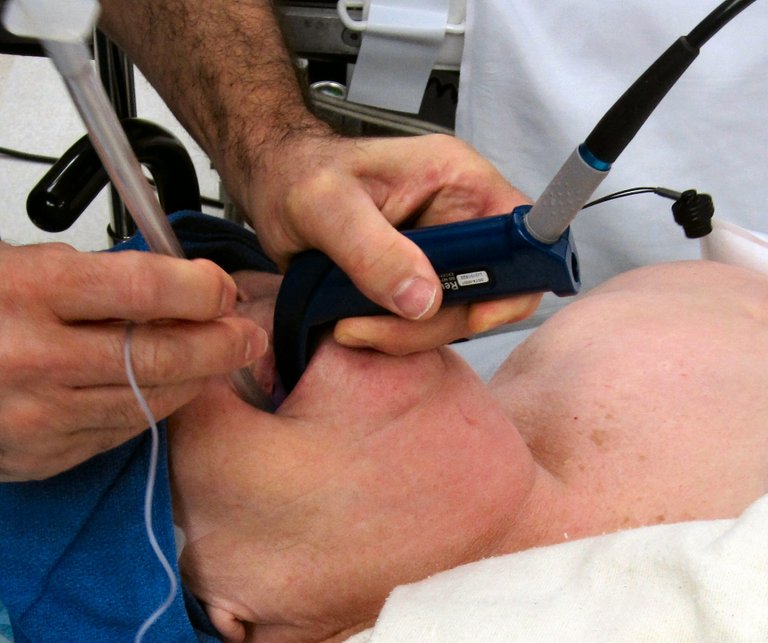Why Eating Before a Surgical Operation Can be Fatal
Have you ever been instructed to abstain from eating or drinking before a medical procedure, particularly if anesthesia is involved? This practice is rooted in essential safety measures that ensure your well-being during any medical intervention, especially those requiring anesthesia.
Personally, I've adhered to this guideline, even for procedures with a short duration of less than 10 hours. It's a precautionary approach, considering the potential need for emergency operations that involve anesthesia. The medical community strictly prohibits eating or drinking prior to any anesthesia-related procedure, and even the smallest consumption, like a candy-sized snack, can result in a procedure postponement to ensure your safety.
There have been a lot of studies that have shown risks of aspiration under anaesthesia, and it has shown that over half of the death related to airway complications in anaesthesia were as a result of pulmonary aspiration which overweighs the can't intubate can't ventilate scenario. Pulmonary aspiration has to do with the increased risk of stomach content getting into the lungs.
The esophagus lead directly to the stomach and between the esophagus and the stomach is the lower esophageal sphincter which is a protectove mechanism that prevent gastric contents from going out of the stomach to the esophagus. The treachea/windpipe which is located anterior to the esophagus lead to the lungs and food is prevented by the epiglottis, arichnoid, and the vocal cords., from getting into it.

pressbooks
With Anaesthesia, there will be diminished or absent airway reflex which prevents substances from getting into the lungs. During this state, any gastric content in the stomach has a higher risk of returning through the lower esophageal sphincter, then get into the treachea, then to the lungs. Onces in the lungs, aspirated content can lead to a life threatening infection. Usually, this is reduduced during intubation, as the endotrachea tube goes through the mouth into the treachea, where cuff on the tube is inflated to prevent enything from passing into the treachea. This process is known as a Secure Airway.
Gastric ultrasound is employed to assess the presence of gastric content, confirming that patients have adhered to fasting protocols. This step is pivotal, considering that anesthesia doses can decrease lower esophageal sphincter tone and airway reflexes, elevating the risk of pulmonary aspiration. In emergencies, the balance between risks and benefits guides decisions, often favoring life-saving interventions over the risk of aspiration.
In the case of an emergency surgeries where the patients had something to eat without knowing that there would be a procedure to be performed, the risks would be weighed, and the better one would be picked. Trust that when it has to do with emergency, saving a patient life is a better risk than pulmonary aspiration (at least anything that goes wrong can be blammed on emergency). With emergency procedures, Rapid Sequence Intubation/induction (RSI) is used to reduce the risk of pulmonary aspiration (not guaranteed) where everything is done very fast, from pushing the induction dose of anaesthesia to intubating with an endotracheal tube which has a cuff to prevent reflux/aspiration.
Do not go to the hospital with food in your stomach only to depend on anaesthetics performing an RSI on you because first it is not a guaratee of aspiration not happening, and also studies have shown that it really doesn't do much with preventing aspiration. Also using RSI can make intubation difficult as the view as a result of the pressure applied on patient's neck.
If you are going into a surgical room, clear liquid is usually okay for at least 2 hours before the procedure. Let me state that this is by the American society of Anesthesiologist. The liquid does not include alcohol, but you can also have a light meal or non-human milk for about 6 hours before the procedure, and when it has to do with a full meal, then it should be at least 8 hours before the procedure. So when you see the medical practitioner asking you not to eat anything after midnight to a procedure, they are trying to weight out all possible conditions that could delay digestion including diabetes. So follow the medical advise from your medical practitioner.
You Can Read More
- https://www.nhs.uk/common-health-questions/operations-tests-and-procedures/can-i-eat-or-drink-before-an-operation/
- https://www.ncbi.nlm.nih.gov/pmc/articles/PMC7709845/
- https://www.ncbi.nlm.nih.gov/pmc/articles/PMC4867185/
- https://www.ncbi.nlm.nih.gov/books/NBK557452/
- https://www.kenhub.com/en/library/anatomy/the-respiratory-system
- https://www.ncbi.nlm.nih.gov/books/NBK557596/
- https://www.ncbi.nlm.nih.gov/pmc/articles/PMC4613402/
- https://www.ncbi.nlm.nih.gov/books/NBK560592/
- https://www.ncbi.nlm.nih.gov/pmc/articles/PMC7922453/
- https://pubs.asahq.org/anesthesiology/article/126/3/376/19733/Practice-Guidelines-for-Preoperative-Fasting-and
- https://pubs.asahq.org/anesthesiology/article/114/3/495/11070/Practice-Guidelines-for-Preoperative-Fasting-and
- https://pubs.asahq.org/anesthesiology/article/111/1/82/9507/Ultrasound-Assessment-of-Gastric-Content-and


Yay! 🤗
Your content has been boosted with Ecency Points, by @busted1.
Use Ecency daily to boost your growth on platform!
Support Ecency
Vote for new Proposal
Delegate HP and earn more
Thanks for your contribution to the STEMsocial community. Feel free to join us on discord to get to know the rest of us!
Please consider delegating to the @stemsocial account (85% of the curation rewards are returned).
Thanks for including @stemsocial as a beneficiary, which gives you stronger support.
Only few pay attention to this but I think I have hear about this before somewhere 🤔
Interesting read. I am certain a way will be found around this as time goes by, with continued research. Having to wait for empty stomach before surgery will become archaic.